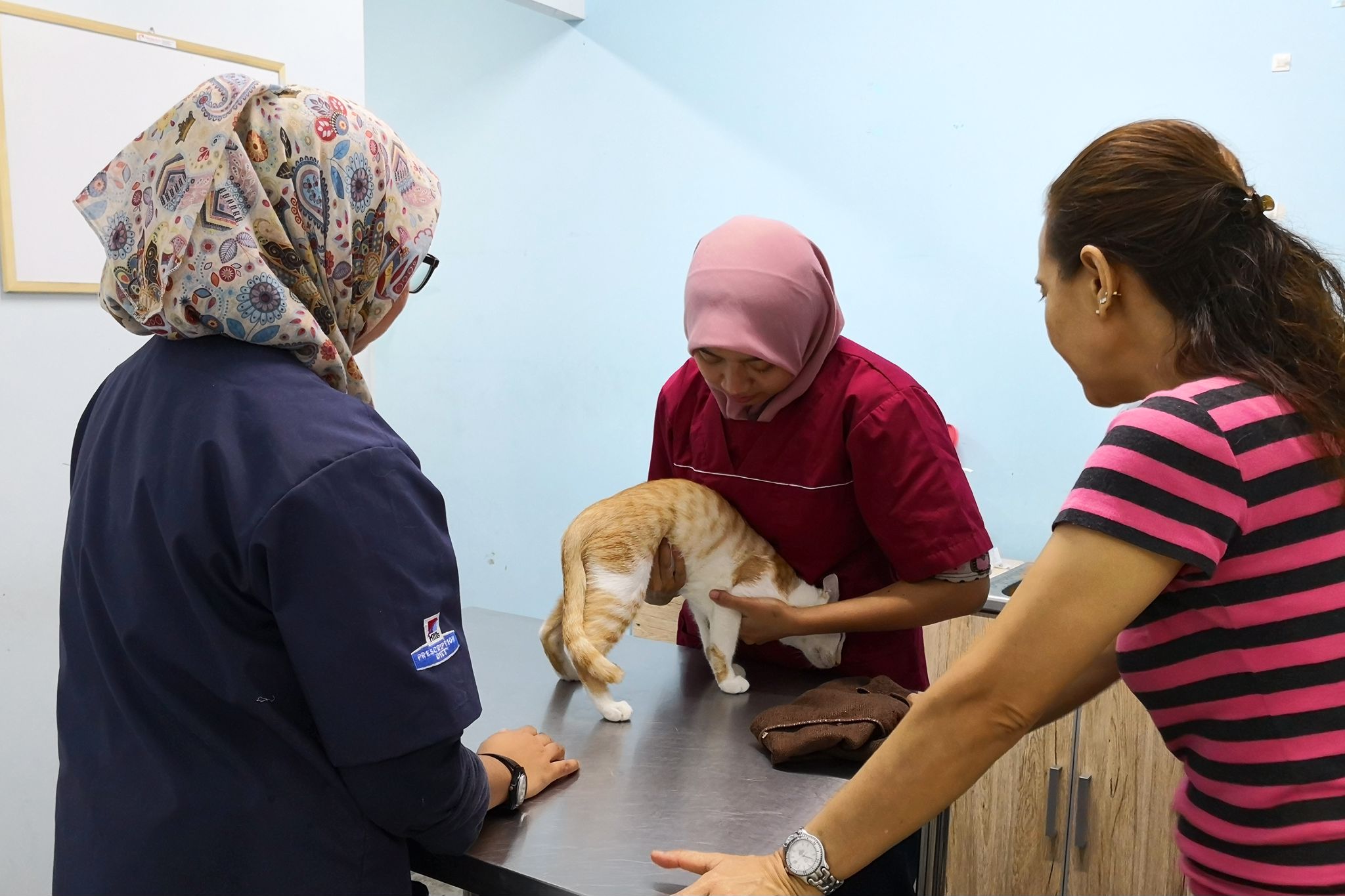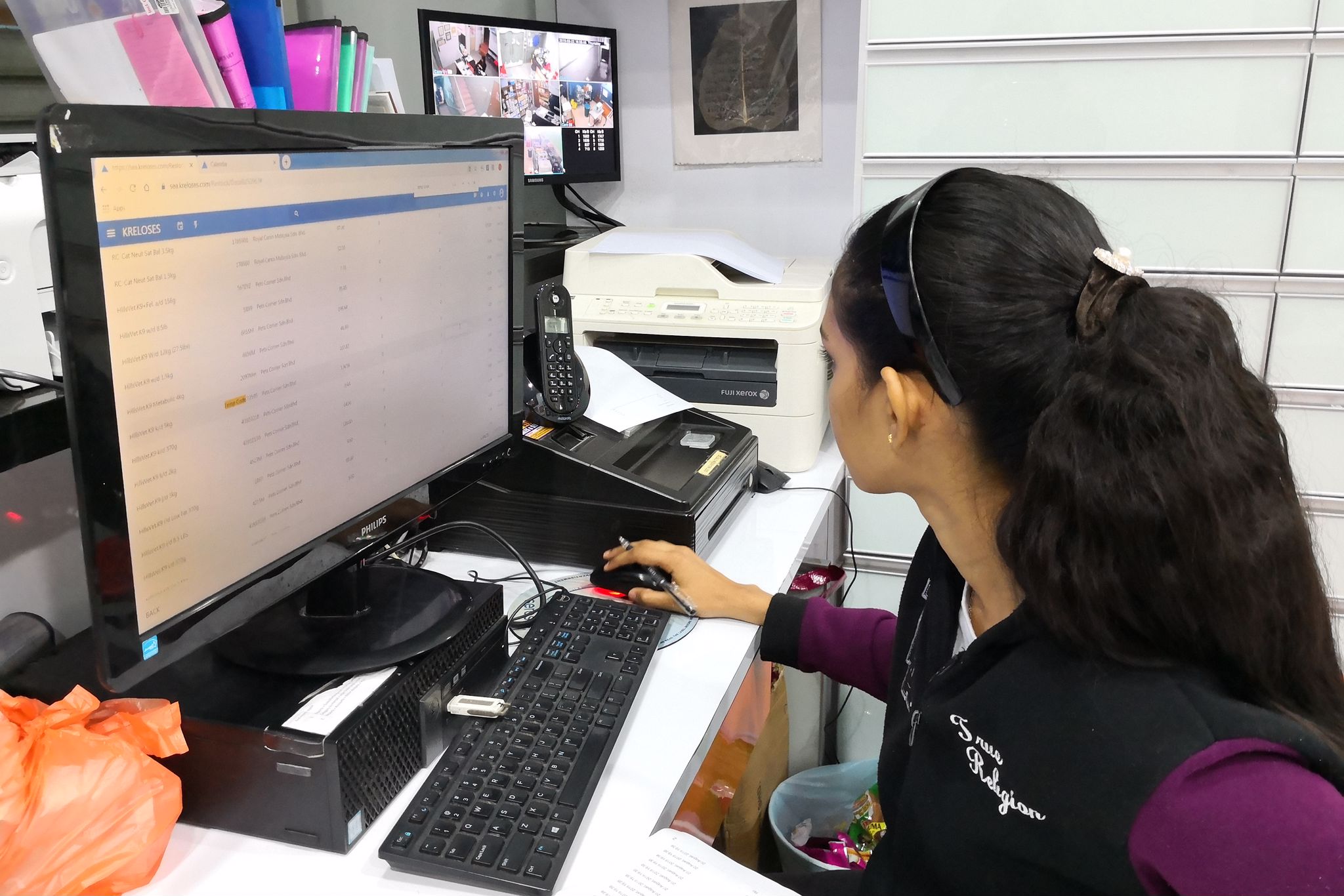Looking into the Current Situation of Indonesian Vets
 Veterinarians often work under immense pressure due to their broad responsibilities. Nonetheless, they are always striving to provide the best service to their patients.
Veterinarians often work under immense pressure due to their broad responsibilities. Nonetheless, they are always striving to provide the best service to their patients.Indonesia has always been struggling with a shortage of veterinarians, a situation that is highly relatable to Malaysia. There are approximately 20,000 vets in Indonesia currently, which is 50,000 away from the ideal total of 70,000. The demand for veterinarians is still very high due to increased public awareness of animal welfare. However, the profession itself is not receiving as much attention despite being a promising one. In the eyes of the majority public, veterinarians are doctors that treat their beloved pets and help to prevent certain diseases. Little did they know, a veterinarian's responsibilities and capabilities are way beyond that.
Occasionally, diseases can spread between animals and humans. These are known as zoonotic diseases. While some are more common diseases like Salmonella, there are also deadly diseases such as Rabies which has a high fatality rate. Fighting and preventing zoonotic diseases would require the combined efforts of various medical fields, including veterinarians. To put in context, the public needs to be informed that if an individual is bitten by a rabies-infected dog, they should seek medical help as soon as possible. Failure to do so may result in death as it is usually incurable when clinical symptoms start showing.
 Many vets are now using software to run their vet clinics and manage all administrative tasks to achieve smooth operations process.
Many vets are now using software to run their vet clinics and manage all administrative tasks to achieve smooth operations process.Many people are not aware that animal welfare is closely linked to human health and veterinarians are very much needed in every aspect of it to keep things under control. There is so much to do with so little time from treating pets to assuring food safety. In this technological generation, one of the ways that can help veterinarians tremendously is by using modern software that can handle all administrative tasks efficiently. With these tedious and time-taxing administrative tasks out of the way, veterinarians can fully focus on their responsibilities and spend more time to do what they love. Working smart is just as important as working hard and veterinarians should not be weighed down by repetitive tasks.
Albeit the points above are relevant to veterinarians globally, it is especially hitting close to home for Indonesian veterinarians. A 2018 research highlights that Indonesia is still prone to food adulteration such as substandard meat production and the rabies outbreak earlier this year have all proved that more local veterinarians are crucially required to cover every field. Furthermore, they are essentially the best candidates to further raise awareness, inform and educate the public about the importance of animal welfare and its consequences if neglected. In this case, vets and the public need to have a symbiotic relationship for the veterinary and medical industries, including Indonesia as a country, to move forward.